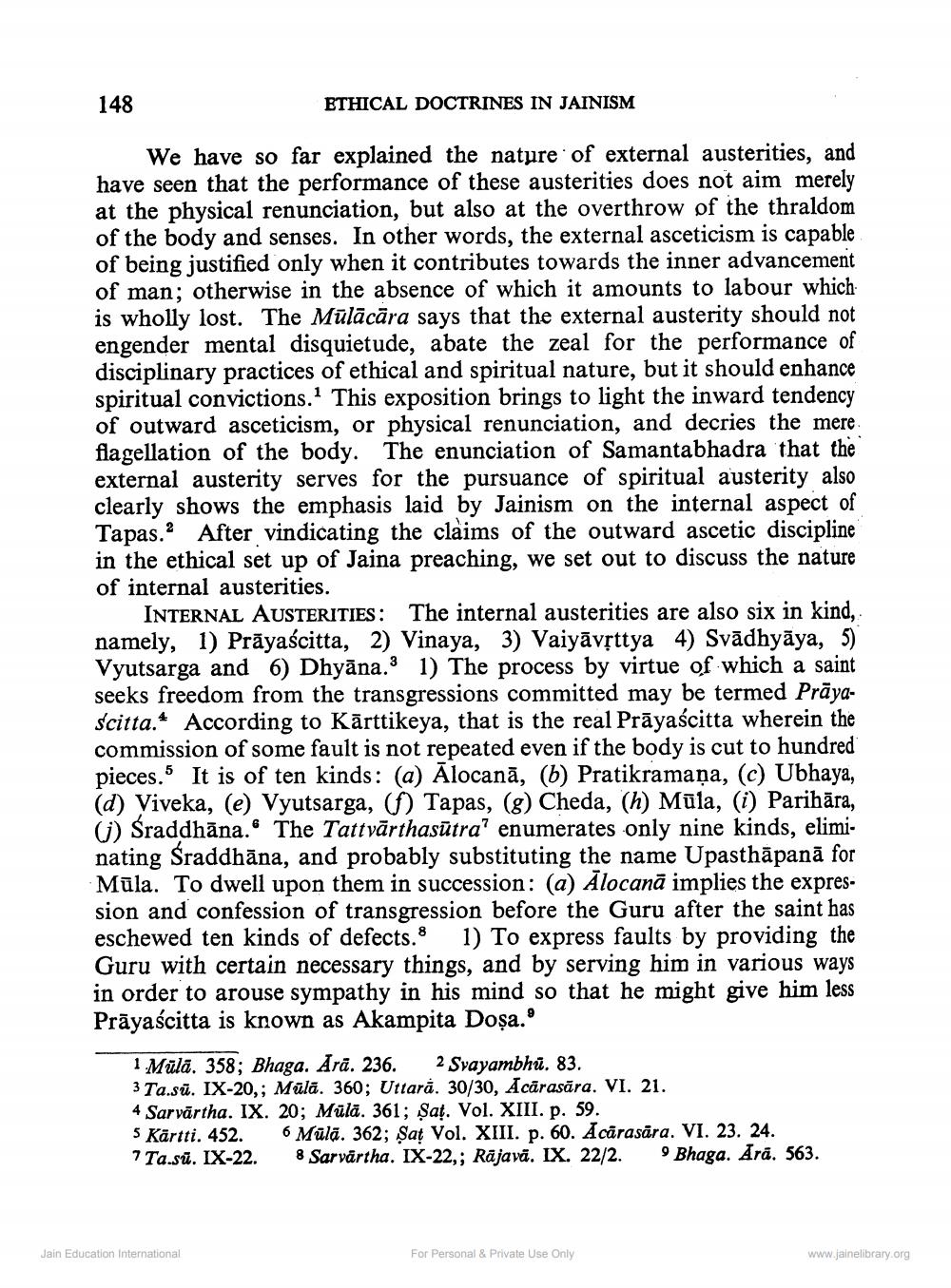________________
148
ETHICAL DOCTRINES IN JAINISM
We have so far explained the nature of external austerities, and have seen that the performance of these austerities does not aim merely at the physical renunciation, but also at the overthrow of the thraldom of the body and senses. In other words, the external asceticism is capab of being justified only when it contributes towards the inner advancement of man; otherwise in the absence of which it amounts to labour which is wholly lost. The Mūlācāra says that the external austerity should not engender mental disquietude, abate the zeal for the performance of
ciplinary practices of ethical and spiritual nature, but it should enhance spiritual convictions. This exposition brings to light the inward tendency of outward asceticism, or physical renunciation, and decries the mere flagellation of the body. The enunciation of Samantabhadra that the external austerity serves for the pursuance of spiritual austerity also clearly shows the emphasis laid by Jainism on the internal aspect of Tapas. After vindicating the claims of the outward ascetic discipline in the ethical set up of Jaina preaching, we set out to discuss the nature of internal austerities.
INTERNAL AUSTERITIES: The internal austerities are also six in kind, namely, 1) Prāyaścitta, 2) Vinaya, 3) Vaiyāvýttya 4) Svādhyāya, 5) Vyutsarga and 6) Dhyāna. 1) The process by virtue of which a saint seeks freedom from the transgressions committed may be termed Prāyascitta.* According to Kārttikeya, that is the real Prāyaścitta wherein the commission of some fault is not repeated even if the body is cut to hundred pieces.5 It is of ten kinds: (a) Ālocanā, (b) Pratikramaņa, (c) Ubhaya, (d) Viveka, (e) Vyutsarga, (f) Tapas, (g) Cheda, (h) Mūla, (i) Parihāra, (j) Sraddhāna. The Tattvārthasūtra' enumerates only nine kinds, eliminating Sraddhāna, and probably substituting the name Upasthāpanā for Mūla. To dwell upon them in succession: (a) Ālocanā implies the expression and confession of transgression before the Guru after the saint has eschewed ten kinds of defects.8 1) To express faults by providing the Guru with certain necessary things, and by serving him in various ways in order to arouse sympathy in his mind so that he might give him less Prāyaścitta is known as Akampita Doșa.
1 Müla. 358; Bhaga. Arā. 236. 2 Svayambhū. 83. 3 Ta.sū. IX-20,; Mülā. 360; Uttara. 30/30, Acārasāra. VI. 21. 4 Sarvārtha. IX. 20; Mülā. 361; Şat. Vol. XIII. p. 59. 5 Kärtti. 452. 6 Mülā. 362; Şat Vol. XIII. p. 60. Acārasära. VI. 23. 24. 7 Ta.sū. IX-22. 8 Sarvartha. IX-22,; Rājavā. IX. 22/2. Bhaga. Ara. 563.
Jain Education International
For Personal & Private Use Only
www.jainelibrary.org




